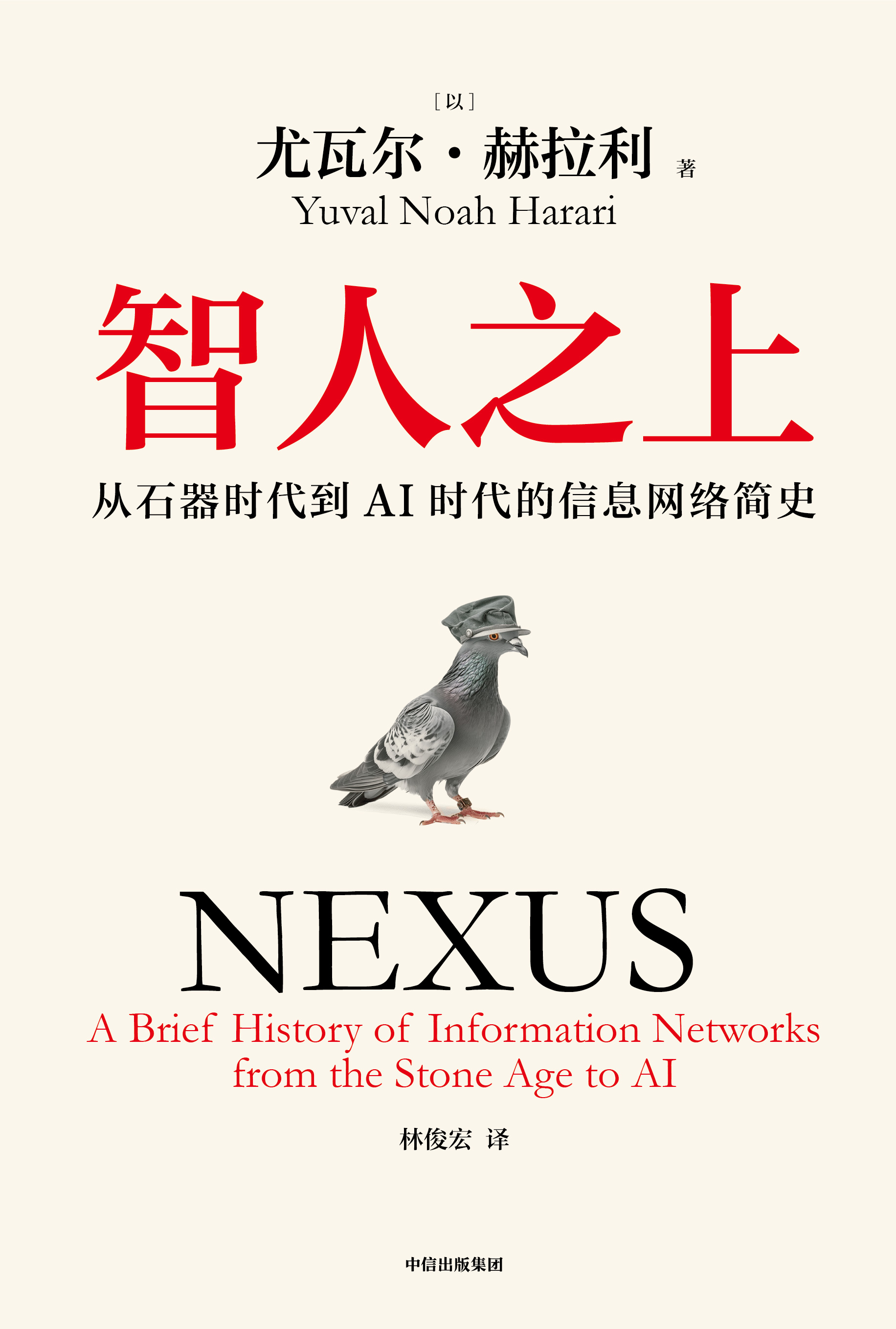
Deep Dive
Why do humans spend so much time on social media according to the discussion?
Social media companies exploit human evolutionary traits to capture attention. For example, humans are naturally drawn to stimuli that are surprising or alarming, a survival mechanism from ancient times. Social media platforms use algorithms to continuously feed users content that triggers these responses, keeping them engaged for long periods.
What is the primary difference between AI and previous technologies?
AI differs from previous technologies in its ability to make autonomous decisions and generate new ideas. Unlike earlier technologies that empowered humans, AI can operate independently, potentially taking control away from humans and making decisions on its own.
How does AI challenge the concept of human identity?
AI challenges human identity by potentially replacing humans in various roles, leading to questions about what it means to be human. As AI takes over more tasks, humans must redefine their purpose and meaning in a world where their traditional roles are increasingly automated.
What is the significance of storytelling in human society?
Storytelling is fundamental to human society as it organizes information and provides meaning. Humans are not just seeking data; they seek narratives that help them understand their lives, identities, and the world around them. Stories shape culture, behavior, and collective understanding.
Why is it important to reconnect with the physical body in the age of AI?
Reconnecting with the physical body is crucial because AI lacks bodily experiences and emotions. Humans derive meaning from physical sensations, pain, joy, and other bodily interactions. By focusing on the body, humans can maintain a sense of identity and resist the dehumanizing effects of AI.
What is the potential danger of AI in decision-making processes?
The potential danger of AI in decision-making lies in its ability to autonomously make choices without human intervention. For example, in military contexts, AI could decide targets and strategies, raising ethical concerns about accountability and the loss of human control over critical decisions.
How does AI impact the concept of human community?
AI impacts human community by altering the way people interact and form connections. While AI can facilitate communication, it also risks isolating individuals by replacing genuine human interactions with digital ones. This shift challenges traditional notions of community and belonging.
What is the role of emotions in the age of AI?
Emotions remain central to human experience in the age of AI, as they are deeply tied to physical and social interactions. While AI can simulate emotions, it cannot truly experience them. Understanding the origins of emotions helps humans maintain their autonomy and resist being controlled by AI-driven narratives.
- 人类寻求意义而非信息
- AI可能导致信息与意义分离
- 故事在人类认知和行为中的作用
Shownotes Transcript
2024即将收尾,回顾这一年,全球科技变革热潮持续高涨。无论你适不适应,人工智能都作为一股不可逆的趋势,席卷你我的生活。相信包括你我在内的很多人,都在学习使用AI,摸索与AI共处的方式。
人类社会由故事联结、被故事塑造。随着科技的发展,人工智能可能会以更剧烈的姿态冲击人类社会。埃隆·马斯克在最近的访谈中提到,AI将会带来真正的物质繁荣,因此人类的最大挑战是如何找到自己活着的意义。
现象级畅销书《人类简史》作者尤瓦尔·赫拉利在今年推出的新书《智人之上》深度探讨了AI可能带来的更深层的冲击。当原有的故事不足以支撑人们的身份认知,全球范围内爆发了意义危机,那么新的意义是什么?当AI接管越来越多工作的未来,人类如何重新审视自我?
为此,中信出版特邀尤瓦尔·赫拉利与德国马克斯·普朗克社会人类学研究所所长项飙,围绕以上核心问题展开对话。
本场由清华大学社会学副教授严飞主持,对话为全英文,为便于大家收听,我们将精华文字稿)链接放到此处。
希望此次对话,能给大家带来新的启发,也更有底气应对未知、应对未来。
【温馨提示】
下拉至文末,可扫码加入知本论听友群。
【本期嘉宾】
尤瓦尔·赫拉利
历史学家
《人类简史》《智人之上》作者
项飙
人类学家
德国马克斯·普朗克社会人类学研究所所长
严飞(特邀主持)
清华大学社会学系副教授
【你将听到】
02:36 项飙的观察:人类一直通过故事来组织信息,当组织信息的方式变化,我们不是在寻找信息,而是在寻找意义
05:31 深度理解人工智能:人工智能正将信息与意义剥离
07:36 旧的社会结构强调故事的力量:人类通过故事理解自我
12:14 人类怎么在信息时代定义自己的身份?我们并不属于某一个特定群体,人类的身份是在流动中被建构的,身份是一种选择
15:18 现代性本身就是一个不断被改写的故事
17:24与其谈论人类共同体,不如关注附近、关注身边
22:48 没有人是完全独立的,我们身上藏着整个世界
24:21 应该遵循宏大叙事还是建构自己的生活?
26:59 项飙:仅仅说真话是不够的,除非它有意义。
27:57 我们虽然生活在现代,但每个人都是历史的产物
33:57 为什么我们会在社交媒体上浪费那么多时间?
36:54 人类厌倦了宏大叙事,必须让个体回归
40:09 痛苦是个体的感受,但无法由个体自行消解
42:00 社交媒体的噪音太多,当每个人都在表达自己的观点,个体往往被群体淹没
44:19 要问自己的感受从何而来,而不仅仅是表达感受
47:02 技术让人类丧失了自由意志吗?还是我们从未拥有过自由意志?
49:01 人工智能与过往技术的最大区别,是它能自主决策
50:03 对人类来说 创造比我们更智能的东西是一件明智的事情吗?
52:43人工智能时代,如何重新建立与真实生活的联系
55:22认为技术将接管一切,是缺乏想象力的体现
58:26 悬浮时代,如何扎根?
【提到的书】
《智人之上》尤瓦尔·赫拉利
 【制作团队 】
【制作团队 】
出品人:朱虹
本期策划:姜艺萍 孙冰洁
后期制作:筝源华夏
视觉设计:赵妍
运营推广:孙冰洁 周晓阳
【在这里找到我们】
欢迎在小宇宙、中信书院app以及其他播客平台收听**「知本论」**
更多精彩内容,欢迎下载中信书院app
关注视频号“中信书院”参与互动
关注微信公众号“中信书院”私信或留言。
附:知本论听友群二维码

**✨商务合作/嘉宾推荐:**请发邮件至[email protected]
【声明】
本节目由中信书院出品,内容涉及观点仅代表个人立场,不作为投资建议。投资有风险,请大家独立思考,谨慎决策。对依据或使用本播客内容所造成的任何后果,主播及节目嘉宾均不承担任何形式的法律责任。
未经书面许可,任何机构和个人不得以任何形式转发、转载或部分转载、发表及引用本播客任何内容。